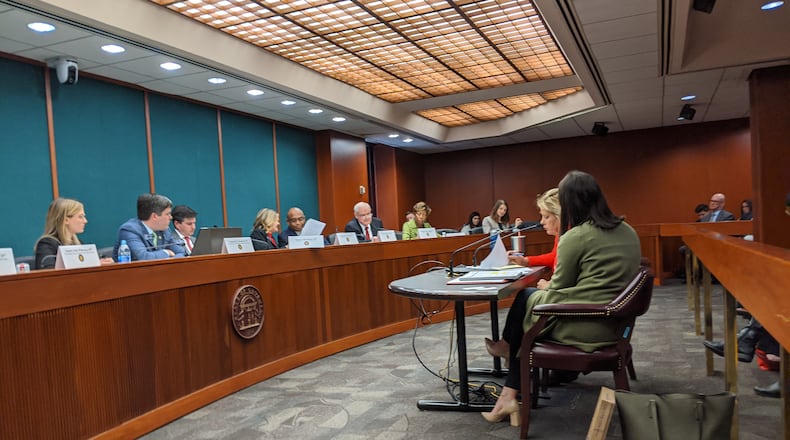A committee of the Georgia senate approved legislation Wednesday that would expand the state-funded private school scholarship program established over a decade ago for students with learning disabilities.
Currently, only students who have been identified by public schools as having special educational needs are qualified to get direct state funding to attend private school. The state pays an average of about $6,300 for each of the nearly 5,000 students who use the special needs scholarship program to subsidize their private school tuition.
It is the only so-called “voucher” program in Georgia, though the state also has a tuition program paid for by tax credits capped at $100 million annually.
The Georgia Department of Education estimates the current cost of the special needs scholarship program at $36 million, rising to $40 million next year without the expansion proposed in Senate Bill 386. The agency estimates, however, that if the legislation becomes law, the cost could exceed $70 million.
That raised concerns on the Senate Education and Youth Committee, though not enough to prevent passage along partisan lines.
“This will be a very expensive plan,” said Sen. Lindsey Tippins, R-Marietta, who sided with Democrats in their unsuccessful vote against the measure.
Lobbyists for teachers and public schools criticized the legislation by Sen. Renee Unterman, R-Buford, saying it would give students with temporary ailments access to public dollars for private school tuition.
The legislation would expand the program to include students with what are known as “504 plans,” so-called because they are regulated by section 504 of the federal Rehabilitation Act. Those students have a disability that does not require the special instruction given to students who have been formally identified under the federal Individuals with Disabilities Education Act.
Students with 504 plans are eligible for "accommodations," such as extended testing time. Critics of SB 386 say the threshold for a 504 plan is so low that students with a broken arm or even an ingrown toenail would qualify, but bill supporters say the legislation would limit scholarships to those with more significant needs. A recent amendment lists 20 qualifying conditions, from ADHD to visual impairment. It also includes conditions for which there is no consensus around diagnosis, such as dyslexia, or for which interventions (a hearing aid for the hearing impaired) are available. And it is open to any "rare disease" identified by the National Organization for Rare Disorders and includes a process for petitioning the state for inclusion in the program without a listed condition.
Critics also noted how the performance of private schools that get the tuition subsidy are not held to the same accountability standards as public schools, which are graded based on a battery of standardized tests. But bill supporters, such as the American Federation for Children, the school choice advocacy organization previously run and co-founded by U.S. Education Secretary Betsy DeVos, say public schools can’t properly serve all students with special needs. Taxpayers should subsidize private schools that parents choose for help, they argued.
>>RELATED | Georgia Senate votes to cut five tests from public schools
>>ALSO | Taxpayers losing passion for private school scholarship donations
>>AND | Georgia lawmakers limit who can handle tax credit scholarship money
Parents said at this hearing and at one last week that public schools had failed to serve their children and that they hold private schools accountable by choosing whether to attend. Among them was Steve Gooch, the senate’s majority whip. Gooch, R-Dahlonega, testified Wednesday that his own son struggled until he got a private diagnosis for attention-deficit disorder and got medication.
Eventually, Gooch said, Lumpkin County Schools was able to help his son thrive, “but if this situation with him was much more severe, I’m not sure what we would have done as parents. So I support this bill for the parents out there who may not have other options.”
SB 386 passed the committee 6-4 and now awaits scheduling for a vote by the full Senate.
About the Author
Keep Reading
The Latest
Featured



